Q&A with Melissa Bruno & Sam Seehra OF BDO.
In June we had the pleasure of hosting our breakfast networking event, ‘Bridging the Gap: Trust, Culture, and Hybrid Work Dynamics.‘ Our speakers were Melissa Bruno, Partner in People Advisory Services, and Sam Seehra, Director of People Advisory Services, both from BDO. Melissa and Sam brought an incredible amount of experience in organisational culture, trust-building and the challenges we face with hybrid work environments.
With her background in leading HR & functional effectiveness programs and her expertise in people & talent Strategy, Melissa provided a clear picture of what’s needed to create high-performing cultures. In addition, Sam shared his experience in culture, employee experience and talent management, along with effective strategies for building trust in growingly uncertain times.
The discussion included an examination of BDO’s Trust Model and its components, offering practical approaches for organisations to create and maintain a trusting workplace culture. We are delighted to share our discussion with you now.
Melissa, Sam, Welcome. Let’s dive right in.
Q1: Tell us, what is the significance of trust in organisational performance and personal happiness, in your opinion?
Trust is fundamental to the success of any organisation and the well-being of its employees. It is the invisible thread that runs through every aspect of our work lives, from team dynamics to leadership effectiveness and overall company performance.
People spend a substantial portion of their lives at work and feeling trusted and able to trust those around them can make this time much more fulfilling. It builds a sense of belonging and purpose, which inevitably extends beyond the office and into our personal lives.
Companies with strong trust cultures also outperform their competitors significantly; and they tend to have more engaged customers, as the internal culture often reflects in external
Q2: And, how does trust impact an organisation’s ability to outperform its competitors?
Research shows us that high-trust companies can outperform their competitors by an astounding 30% to 50%. This increase in performance stems from several factors. Firstly, trust fosters innovation. When employees feel safe to share ideas and take risks, creativity flourishes. Secondly, it enhances collaboration. In a trusting environment, teams work together more effectively, breaking down silos and speeding up decision-making processes.
When employees trust their organisation, this positively impacts how they interact with customers too, leading to higher customer satisfaction and loyalty – aiding talent attraction and retention. A reputation for being a high-trust organisation is a powerful draw for top talent.
When employees trust their organisation, this positively impacts how they interact with customers too, leading to higher customer satisfaction and loyalty – aiding talent attraction and retention. A reputation for being a high-trust organisation is a powerful draw for top talent.

“Employees in high-trust environments report 74% less stress and 40% less burnout “
Q3: What are the current trends in trust levels within organisations, particularly in developed versus developing countries?
The trends we’re seeing in trust levels are quite fascinating, and there’s a notable divide between developed and developing countries. According to the latest Edelman Trust Barometer, developing countries are actually leading in terms of trust. The average trust index for developing countries is 63, compared to 49 for developed countries.
Interestingly, the UK, which is a developed nation, now ranks among the least-trusting countries with a trust index of 43. This trend is concerning to many. It suggests that organisations in developed markets need to work harder to rebuild trust.
In contrast to this, countries like China, India, and Indonesia are showing much higher levels of trust, with indices of 79, 76, and 73 respectively. The high levels of trust in these nations may be a significant factor in their rapid economic growth and increasing global influence. Something we could learn from.
Considering that only 50% of employees trust their organisation globally, and 81% feel that trust in organisations is on the decline, there is a clear need for organisations worldwide to prioritise trust-building initiatives.
Q4: What are some of the benefits experienced by high-trust organisations?
First off, research suggests we can see an incredible 50% increase in productivity. That’s not just a minor bump – it’s huge. Employees in these high-trust environments report 74% less stress and 40% less burnout.
The same research reported an 106% increase in energy at work. Think about that for a moment – people are literally twice as energised when they trust their organisation. Engagement levels soar by 76%, and employees take 13% fewer sick days.
Q5: Why do you think trust declining in many organisations today?
This is a complex issue, but there are several factors at play. Firstly, we’re seeing a general decline in trust across all institutions. Scandals have truly rocked organisations that were previously highly respected. Think about things like ‘Partygate’ in the UK, the proliferation of fake news and instances of greenwashing – to name a few.
The UK, in particular, has been grappling with uncertainty since Brexit, which highlighted deep divisions in society. This uncertainty has eroded trust in government and institutions. We’re also seeing a decline in religious affiliation, which traditionally provided a foundation of trust for many. The pandemic has further complicated matters, forcing rapid changes in how we work and interact.
All these factors combined have created a perfect storm for declining trust.
Having said that though, in an increasingly polarised world, business is generally seen as a force for good when people are unable to trust governments.

“THE KEY IS TO BE INTENTIONAL WITH […] YOUR HYBRID WORKING POLICY“
Q6: What challenges does hybrid working pose to organisational trust and collaboration?
Hybrid working has certainly thrown up some unique challenges when it comes to trust and collaboration. In our culture assessments, we often see hybrid working unfairly scapegoated for any issues related to culture. What we consistently find is that the lowest scores tend to be in two areas: trust and integrity, and collaboration and accountability.
These elements go hand in hand, and they’re particularly challenging in a hybrid environment. Why? Well, trust often builds through face-to-face interactions, those water cooler moments that are harder to replicate virtually. Collaboration can also suffer when people aren’t physically together, as spontaneous brainstorming sessions or quick catch-ups become less frequent.
It’s important to note that about 80% of learning happens in person, so innovation culture needs people to be together at least some of the time. It depends on where you are in your business cycle and what you’re trying to achieve.
Mandating fully remote or fully in-office work often leads to cultural disconnect. We’ve found that using the carrot rather than the stick tends to work better. For example, at BDO, where we have a consensual culture, we have initiated a number of small actions to show people we’d like to see them in the office such as offering free office breakfasts. However, we have steered away from mandating a specific number of days in the office per week. At BDO we have an agile working framework which empowers employees to work with their managers and teams to decide what hybrid working arrangement & office presence work best for them, their team and their clients.
The key is to be intentional about what you’re trying to achieve with your hybrid working policy. It’s about finding the right balance that grows trust and collaboration while also providing the flexibility that many employees now expect.
Q7: What strategies can organisations implement to optimise hybrid working and foster trust?
First and foremost, be intentional about what you’re trying to achieve with your hybrid policy and practices. A key strategy is to focus on outcomes rather than hours worked. This shift in mindset can help build trust by showing employees that you value their contributions, not just their presence.
And invest in the right technology that enables better collaboration between remote and in-office workers. This can really help bridge the gap and ensure that all employees feel equally connected and valued, regardless of their location.

“TRUST IS A TWO WAY STREET“
Q8: At our recent event, you talk about trust being a 2-way street, can you expand on that please and talk us through the key elements?
Absolutely! trust is a two-way street, with both organisational and individual components.
On the organisational side, we see three key elements:
1. Competence: This is about the organisation’s ability to deliver on its commitments.
2. Motivation: This refers to the genuine intent of the organisation and the care it has for its employees.
3. Integrity: This is about how fairly an organisation attempts to reach its goals and deliver on its commitments.
On the individual side, we also have another three components:
1. Ability: This refers to an individual’s capacity to instill trust and collaborate with others, as well as their ability to perform their job.
2. Wants: This is about an individual’s self-interest and willingness to trust & empower others. We’ve found that self-orientation is one of the biggest derailers of trust.
3. Environment: This is about creating a working environment that fosters trusting behaviours between employees, enabling meaningful relationships.
The model emphasises that trust isn’t just about individual actions or organisational policies – it’s about how these elements interact and reinforce each other.
Q9: Can you explain a little more about the BDO Trust Model you are developing and its components?
Absolutely! The BDO Trust Model is a framework we’ve been developing to articulate the most critical conditions that are required to make an employee feel trusted. These include being heard, empowered, treated fairly, feeling safe (including psychological safety), having autonomy and feeling supported & cared for. This is all underpinned by transparency. If organisations can get this right for their employees, the output and benefits can be wide ranging from higher productivity, innovation, more energy & confidence, better health and higher job & life satisfaction.
Q10: How can organisations create a trusting culture?
Creating a trusting culture is never an easy process, but there are several key strategies that can make a significant impact.
You need to first define your purpose, culture and values with employee input. At BDO, we’ve found that prioritising three or four key values that will make a difference, and then getting leadership buy-in, is a powerful starting point.
Empowering employees is another vital step. Cross-functional steering and project groups can be incredibly effective. They provide organisations the opportunity to bring together people from different departments to work towards a common goal, which not only fostered trust but leads to increased levels of collaboration.
Transparency is also key. We’ve seen tech companies implement ‘f*ck up sessions’ which are frequent lesson learnt sessions where people of all levels, including leadership, highlight a recent mistake, failure or something they wished they did differently to aid learning, accountability and trust. It also helps to demonstrate authenticity of leadership and creates a safe environment to learn from mistakes. However, it’s important to note that transparency might look different across different businesses. The key is to define how transparency works for your organisation and then communicate that clearly to your workforce.
Recognising the behaviours you want to see from your employees is an important route to building your desired culture. This could be big or small, for example it could be a bonus for cross selling in a sales environment. It could be something more tactical like a SPOT award, for example at BDO within our department, we have a peer-to-peer recognition ‘thank you’ awards which are held monthly. Every nomination is shared, and this creates a feel-good feeling can really boost trust and morale between colleagues.
Lastly, you need to embed trust into your talent and performance processes for the behaviour to be reinforced. This might involve building trust metrics into your performance management process, putting greater emphasis on values in performance management or rethinking your promotion, recognition & reward structure to prioritise trust-building behaviours.

“When employees feel heard and valued, trust naturally follows. “
Q11: What is the role of leaders in fostering a culture of trust?
Leaders are absolutely crucial in fostering a culture of trust. We’re the ones who set the tone for the entire organisation. It’s not just about what we say, but what we do every single day that matters most.
Leaders must model the behaviour they want to see. If we expect our teams to be open and honest, we need to lead by example. This means being transparent about our own decision-making processes, admitting when we’ve made mistakes, and being vulnerable enough to ask for help when we need it.
We also need to create an environment where people feel safe to express their ideas and concerns without fear of retribution. At Microsoft, for instance, they’ve implemented a leadership framework called “Model, Coach, Care.” This approach emphasises the importance of leaders demonstrating the desired behaviours, guiding their teams, and showing genuine concern for their well-being.
We must also follow through on our commitments and keep our promises. If we say we’re going to do something, we need to do it. This builds credibility and shows our teams that they can rely on us.
It is important to actively listen to our employees, truly understanding their perspectives and acting on their feedback when appropriate. When employees feel heard and valued, trust naturally follows.
Q12: What steps can organisations take to maintain transparency and provide continuous feedback?
One of the most effective steps we’ve seen is the implementation of regular, open communication channels where employees can share feedback. This could include weekly team meetings, or quarterly all-hands meetings where company performance and future plans are discussed openly.
Another crucial step is to establish a culture of continuous feedback. This means moving away from purely annual performance reviews and towards more frequent reviews (which should be 2 way) and informal check-ins. Pulse surveys and upward feedback surveys are always useful listening exercises when complimented with richer feedback exercises.
It’s important to use technology to our advantage. Many organisations are implementing digital platforms where employees can voice concerns, ask questions, and provide feedback in real-time. These platforms should be accessible to all employees and actively monitored for responses and action.
ABOUT the AUthors
WANT TO BE NOTIFIED OF FUTURE CAREER MOVES EVENTS?
Career Moves Networking events aim to unite a vibrant community of HR professionals to discuss the pressing issues and challenges in the field. We meticulously curate our events to present a diverse mix of perspectives, ensuring that the needs and interests of all attendees are fully addressed.
Our events are exclusively designed for HR professionals and Registration is mandatory. Sign up to our newsletter to be kept informed of future events.









